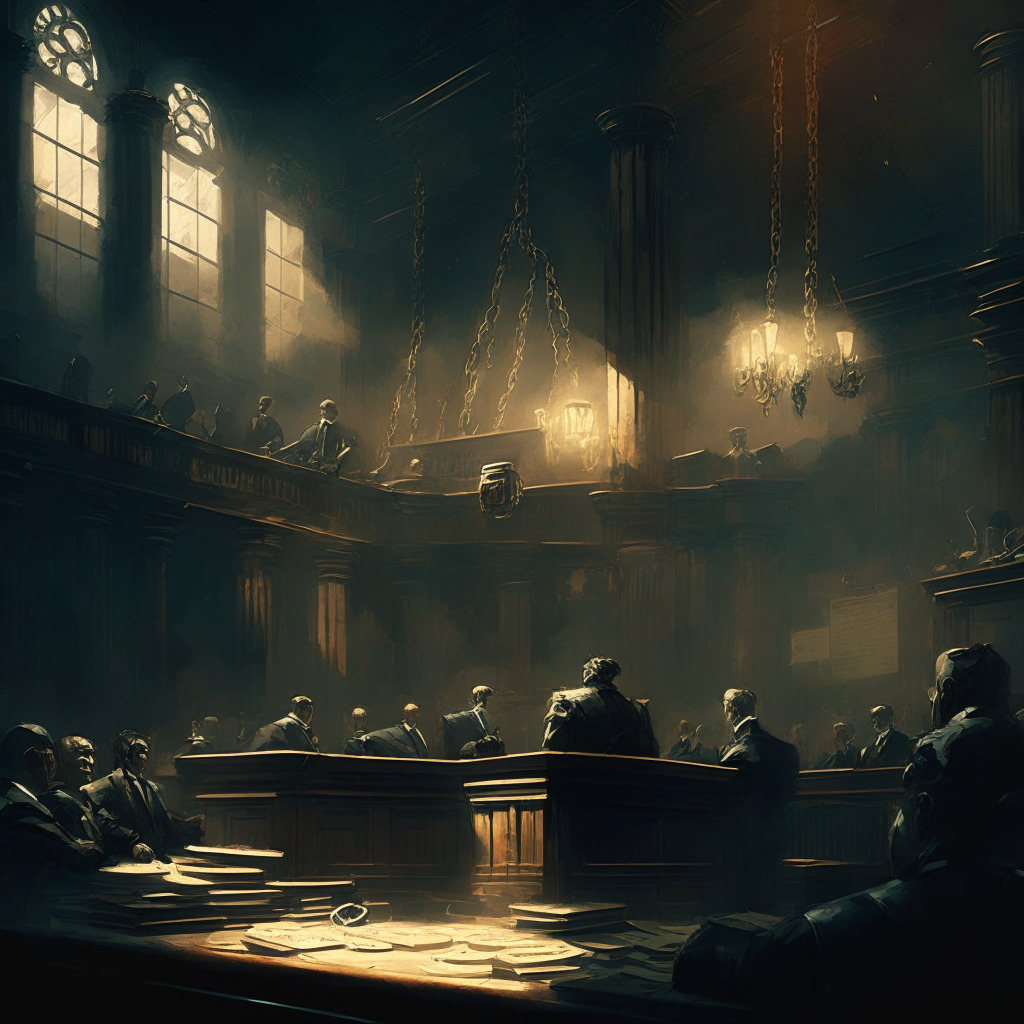Strides in the ongoing legal battle of Sam Bankman-Fried, founder of FTX, have left many pondering the future of regulations in the crypto space. On Thursday, a U.S court denied Bankman-Fried’s request for pretrial release, preserving the strict conditions set out by the district court against the cryptocurrency entrepreneur.
This comes after his lawyers cited hefty hurdles to effective defense preparations, including poor internet connection and constrained battery life. The Southern District Judge of New York, however, has dismissed such appeals, asserting that the restrictive conditions of detainment were a necessary consequence of Bankman-Fried’s alleged fraudulent activities. This dismissal sets an intriguing precedent for the notion of regulatory severity in future legal dealings within the crypto industry.
Meanwhile, the US Department of Justice (DOJ) argued that Bankman-Fried was able to mount an effective defense, asserting that he had enough access to sufficient internet speeds for most internet-related review activities. This brings questions about equity and access to the foreground of the regulatory debate.
Bankman-Fried’s trial, set to begin in October, adds to the growing crescendo around regulation and responsibility within the volatile crypto market. Shouldering multiple charges of fraud and conspiracy following the collapse of his crypto exchange, FTX, Bankman-Fried’s case could illustrate the consequence of improper management within the industry. His plea of not guilty, paired with unprecedented jury voir dire questions, could usher in a ripple effect for industry-wide operations.
By asking potential jurors if the failure of a crypto company should fall solely on its owners, the court may be setting the stage for broader discussions about responsibility and accountability within the cryptoverse. This may be a foreshadowing of potential shifts in the sector’s regulatory approach.
Yet, the DOJ’s qualms about proposed jury questions being potentially intrusive and molding a narrative for his defense shed light on the fine line between justice and manipulation. They especially challenge queries about FTX and elements of potential jurors’ viewpoints regarding the cryptosphere, arguing that this may be a ploy for a skewed defense.
Through this lens, Bankman-Fried’s claim of accumulating wealth to improve the world faces a test under scrutiny. This claim may portray the defendant as a benefactor, but the deeper concern is whether the justice system is equipped to decipher such philosophical and moral nuances within a strictly legal context.
This pivotal case is bound to stir waves across the crypto landscape, compelling us to reflect and reevaluate our inherent assumptions about responsibility, transparency, and the future of crypto regulation. The trials and tribulations of Bankman-Fried may thus serve as a litmus test for the future direction of industry-wide regulatory standards.
Source: Cryptonews




